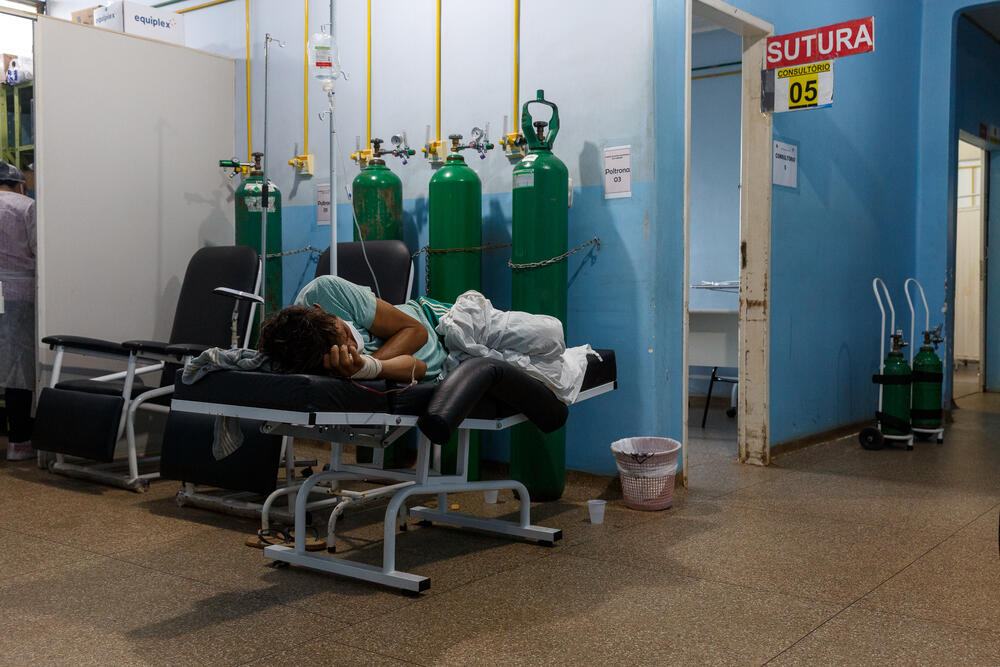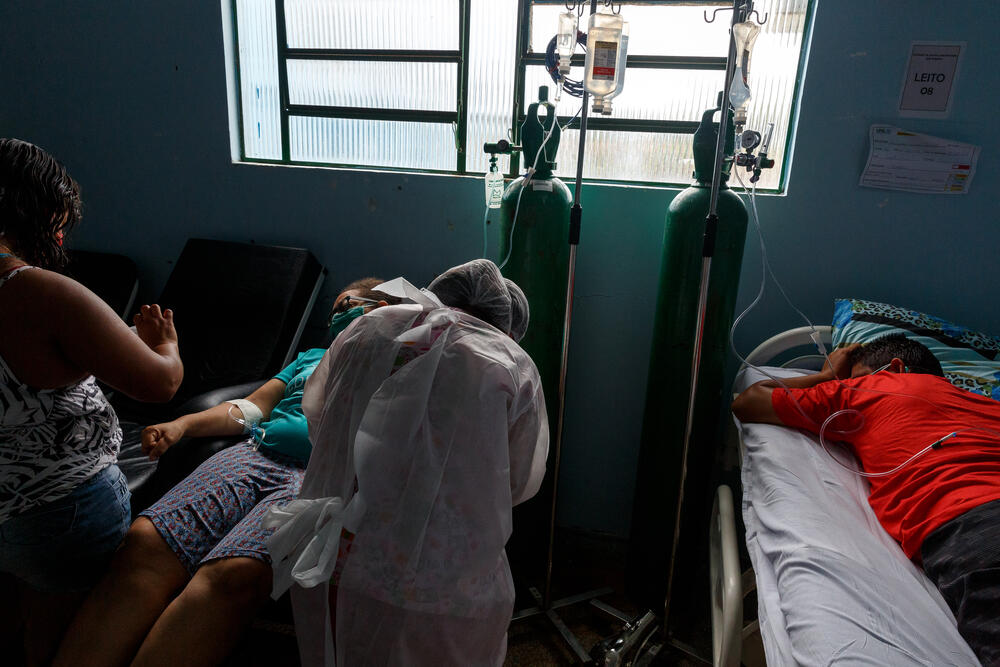Brazil: Failed COVID-19 response leads to humanitarian catastrophe
More than 12 months into Brazil’s COVID-19 emergency, there is still no effective, centralised and coordinated public health response to the outbreak.
The lack of political will to adequately respond to the pandemic is killing Brazilians in their thousands.
Médecins Sans Frontières (MSF) is urgently calling on Brazilian authorities to acknowledge the severity of the crisis and to put in place a central COVID-19 response and coordination system to prevent further avoidable deaths.
Last week, Brazilians accounted for 11 percent of the world’s COVID-19 infections and 26.2 percent of global COVID-19 deaths. On 8 April, 4,249 deaths from COVID-19 were recorded in a single 24-hour period, alongside 86,652 new COVID-19 infections.
These staggering figures are clear evidence of the authorities’ failure to manage the health and humanitarian crises in the country and protect Brazilians, especially the most vulnerable, from the virus.
“The COVID-19 response in Brazil needs to start in the community, not the ICU”
“Public health measures have become a political battlefield in Brazil,” says Dr Christos Christou, International President of MSF.
“As a result, science-based policies are associated with political opinions, rather than the need to protect individuals and their communities from COVID-19.
“The federal government has all but refused to adopt evidence-based comprehensive public health guidelines, leaving Brazil’s dedicated medical staff to manage the sickest in intensive care units and improvise solutions when beds are unavailable,” continues Dr Christou.
“This has put Brazil into a permanent state of mourning and led to the near collapse of Brazil’s health system.”
ICUs full
“The COVID-19 response in Brazil needs to start in the community, not the ICU”, says Meinie Nicolai, MSF General Director.
“Not only must medical supplies like oxygen, sedatives and PPE reach where they are needed, but the wearing of masks, physical distancing, strict hygiene measures and the restriction of non-essential movement and activities must be promoted and implemented in the community in accordance with the local epidemiological situation.”

Help us prepare for the next emergency
“COVID-19 treatment guidelines must be updated to reflect the latest medical research and rapid antigen tests must be made widely available to facilitate both patient care and outbreak control,” says Nicolai.
Last week, intensive care units (ICU) were full in 21 out of 27 of Brazil’s capitals.
In hospitals across the country, there are ongoing shortages of both oxygen, needed to treat patients who are severely and critically ill, as well as sedatives, needed to intubate critically ill patients.
As a result, our teams have seen patients, who may have otherwise had a chance at survival, being left without appropriate medical care.
“The response in Brazil needs an urgent, science-based and well-coordinated reset”
“The devastation that MSF teams first witnessed in the Amazonas region has become the reality across the majority of Brazil,” says Pierre Van Heddegem, Emergency Coordinator for MSF’s COVID-19 response in Brazil.
“The lack of planning and coordination between federal health authorities and their state and municipal counterparts is having life or death consequences.”
“Not only are patients dying without access to healthcare, but medical staff are exhausted and suffering from severe psychological and emotional trauma due to their working conditions”, says Van Heddegem.
Another limitation is that there is a shortage of local health professionals. However, foreign health staff, and even Brazilians with foreign qualifications, are not permitted to work in Brazil.
Disinformation rife
Fuelling sickness and death in Brazil is the overwhelming amount of disinformation circulating in communities across the country. Masks, physical distancing and the restriction of movement and non-essential activities, are shunned and politicised.
In addition, hydroxychloroquine (an anti-malarial medication) and ivermectin (an anti-parasitic drug) are touted by politicians as the panacea to the COVID-19 pandemic and prescribed by doctors as both COVID-19 prophylaxis and treatment.
To add to the troubling situation in Brazil, a country that vaccinated 92 million people against H1N1 (Swine flu) in just three months in 2009, the COVID-19 vaccination campaign is running at half speed.
So far, around 11 percent of people have received at least one dose. This means that millions of lives inside Brazil, and even beyond its borders, are at risk from more than 90 variants of the virus currently circulating in the country, as well as any new variants that may emerge.
“The Brazilian authorities have overseen the unmitigated spread of COVID-19 over the past year,” says Dr Christou.
“Their refusal to adapt evidence-based public health measures has sent far too many to an early grave.
“The response in Brazil needs an urgent, science-based and well-coordinated reset to prevent further avoidable deaths and the destruction of the once prestigious Brazilian health system.”
MSF in Brazil
MSF began medical operations in Brazil in 1991, initially in response to a cholera epidemic and a high number of malaria cases.
In April 2020, our COVID-19 activities kicked-off with assistance to homeless people in São Paulo. Since then, MSF teams have worked in eight Brazilian states and supported more than 50 health facilities, focusing on caring for the most vulnerable members of the community.
As the pandemic progressed, we have expanded our focus to support health systems that are fragile and do not have the capacity to provide care to the huge numbers of Brazilians who are ill and dying of COVID-19. We are currently supporting local services to care for COVID-19 patients in the North of Brazil, in the states of Rondônia, Roraima and Amazonas.

